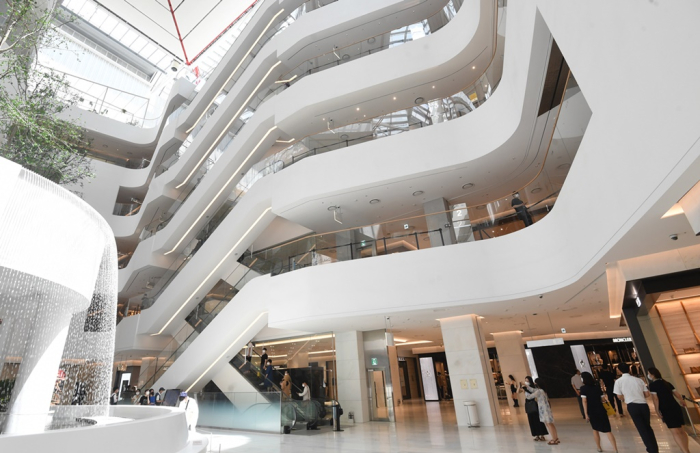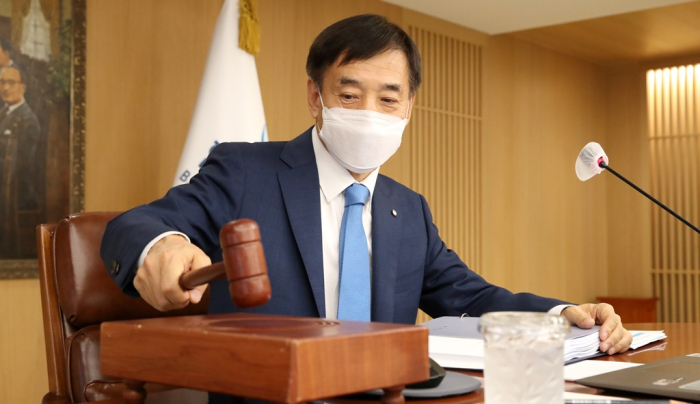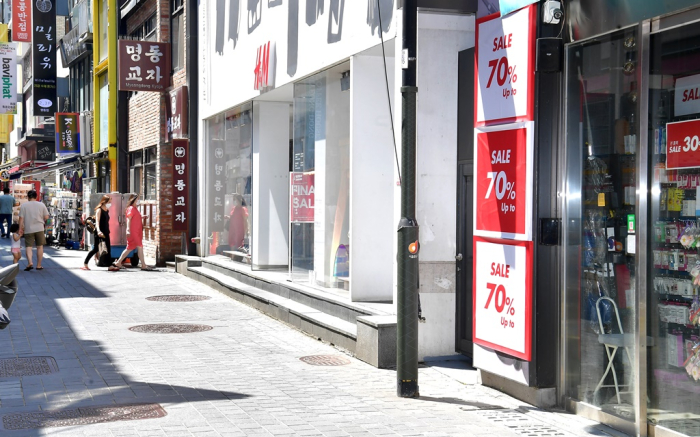Economy
Strong Korea Q2 growth keeps rate hike stance despite COVID-19 risks
Economy grows 0.7% in Q2 vs Q1, 5.9% on-year on robust private consumption
By Jul 27, 2021 (Gmt+09:00)
3
Min read
Most Read
MBK’s Korea Zinc takeover attempt to spur search for white knights


Korea Zinc, MBK face proxy war for zinc smelter


Korea Zinc shares skyrocket after buybacks in tender offer


Lotte to liquidate rubber JV in Malaysia, sell overseas assets for $1 bn


Samsung to unveil 400-layer bonding vertical NAND for AI servers by 2026



South Korea's economy reported strong growth on healthy private consumption in the second quarter, keeping expectations of an interest rate hike later this year intact. But a resurgence in COVID-19 infections has darkened the outlook for Asia’s fourth-largest economy in the coming months.
The economy expanded 0.7% in the April-June period from the previous quarter and 5.9% year on year, the fastest annual pace since the fourth quarter of 2010, data from the Bank of Korea (BOK) revealed on July 27.
Private consumption increased 3.5% in the second quarter, the highest in 12 years, as the rapid vaccination rollout improved consumer sentiment. The service sector grew 1.9%, to mark the highest quarterly growth since the first quarter of 2007.
The central bank said gross domestic product (GDP) rose 3.9% in the first half, higher than its own forecast of 3.7%, helping the economy to grow 4% this year.
“The fourth COVID-19 wave will have a relatively weaker impact on private consumption than the previous waves,” said Park Yang-su, head of the statistics department at the BOK. “The second supplementary budget will also have the effect of pushing up the growth rate."
Lawmakers approved a 34.9 trillion won ($30.2 billion) supplementary budget earlier this month, the largest on record for extra spending outside the country’s annual budget, to help households and small businesses hit hard by COVID-19. In March they had already endorsed an extra 14.9 trillion won to the budget.
After the second-quarter growth data was released, the most liquid three-year treasury bond yield edged up 1.1 basis points to 1.38%, the first rise in three sessions. The healthy growth added to expectations that the BOK will be the first Asian central bank to raise interest rates from pandemic-era lows.
“The interest rates could be increased in August if COVID-19 cases fall below 800,” said Kim Sang-hun, a fixed-income analyst at HI Investment & Securities.
BOK Governor Lee Ju-yeol said on July 15 that the central bank may consider a monetary policy adjustment from the policy meeting in August, fanning speculation of tightening later this year.

Meanwhile, COVID-19 infection cases have remained stubbornly high in the four digits for three consecutive weeks, reaching a record high of 1,842 on July 22. The government implemented its toughest restrictions yet to contain the pandemic, which some analysts said will hurt consumption.
“Private consumption, which accounts about a half of GDP, will significantly shrink as the Level 4 social distancing curbs continue until next month,” said Joo Won, chief economist at Hyundai Research Institute, referring to the strictest measures, which include a ban on gatherings of more than two people after 6 p.m., in the capital Seoul and neighboring areas. “A contraction in the third quarter cannot be ruled out.”
Finance Minister Hong Nam-ki said in a Facebook post said a recent surge in COVID-19 infections and extended distancing rules are expected to pose a threat to an economic recovery, although the economy remains on track to achieve 4% growth this year.

A spread of the Delta variant around the globe is another risk as restrictions of other countries could hit exports. Overseas sales in the second quarter already skidded 2% on weaker automobile shipments amid the global automotive chip shortage.
Goldman Sachs slashed its forecast for US economic growth for this year to 6.6% from 7% amid a recent resurgence in COVID-19 infections via the Delta variant.
Write to Ik-Hwan Kim at lovepen@hankyung.com
Jongwoo Cheon edited this article.
More to Read
-
 Central bankingBank of Korea sets stage for tightening after holding rates
Central bankingBank of Korea sets stage for tightening after holding ratesJul 15, 2021 (Gmt+09:00)
3 Min read -
 Monetary policyBank of Korea governor sends stronger signal to raise rates this year
Monetary policyBank of Korea governor sends stronger signal to raise rates this yearJun 11, 2021 (Gmt+09:00)
3 Min read -
 Monetary policyBank of Korea governor flags rate hike as economy improves
Monetary policyBank of Korea governor flags rate hike as economy improvesMay 27, 2021 (Gmt+09:00)
2 Min read
Comment 0
LOG IN


